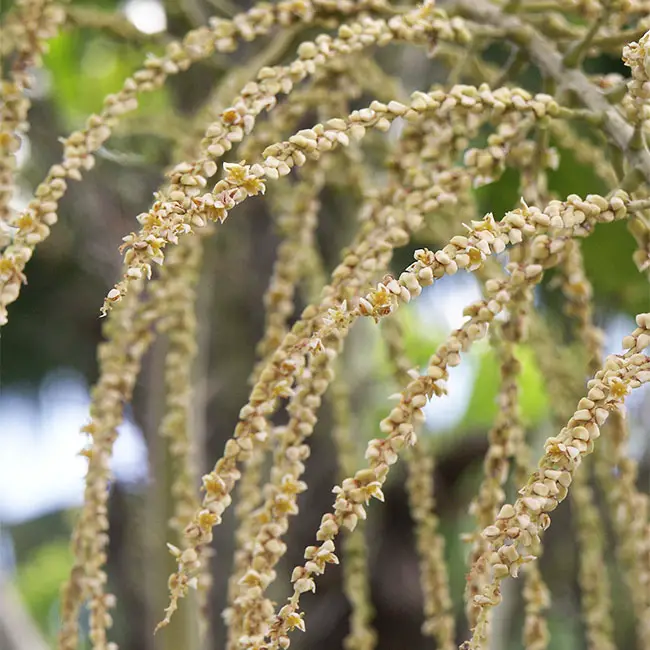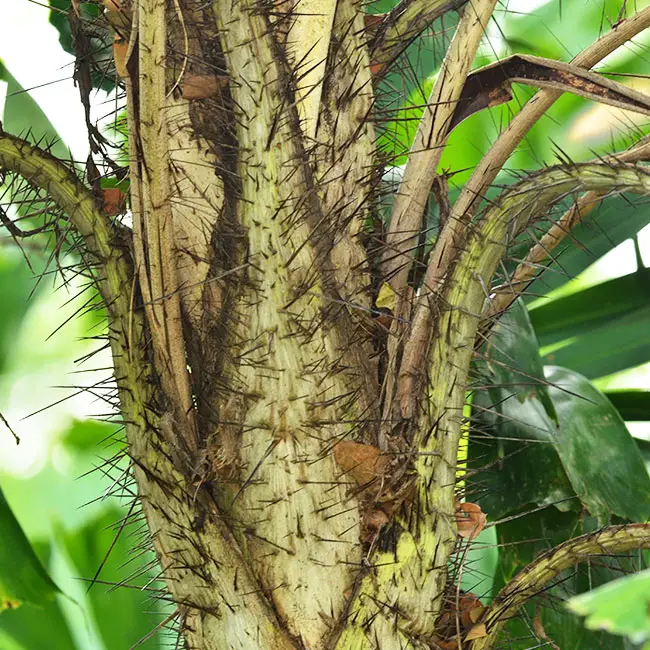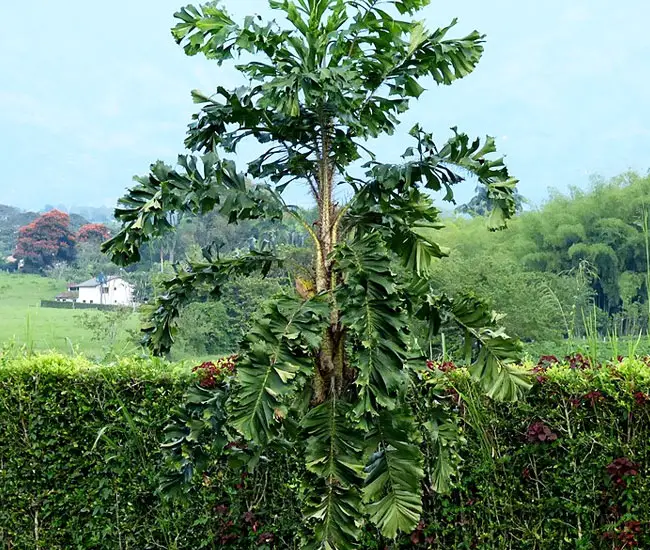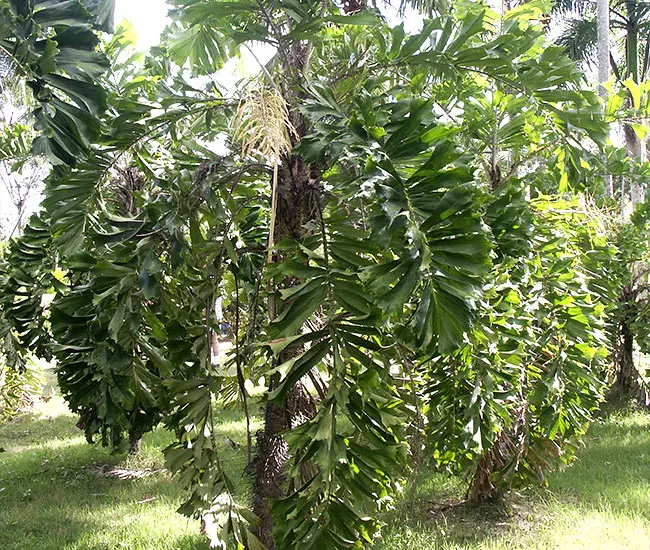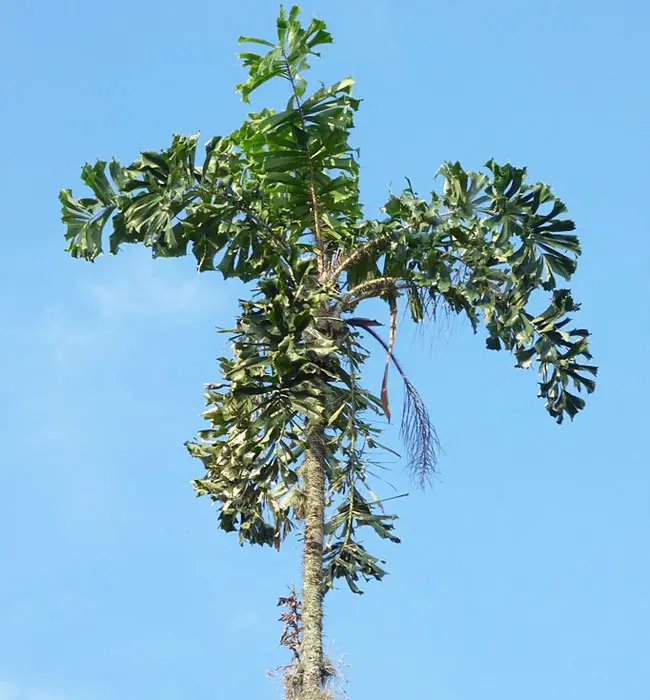
The Coyure Palm Tree, scientifically known as Aiphanes horrida, is an exotic and exceedingly rare palm tree characterized by a gray trunk adorned with striking black spines.
This palm, truly a collector’s gem, adds a unique and captivating touch to any landscape. It’s important to note that the Coyure Palm thrives outdoors and isn’t suited for indoor cultivation.
Quick Facts:
| Scientific name: | Aiphanes horrida |
| Common names: | Coyure Palm, Ruffle Palm, Aculeata Palm, Aiphanes Species, Spine Palm |
| Origin: | Native to South America. |
| Growth Rate: | Slow to Moderate. |
| Cold Tolerance: | USDA Zones 10a (30 – 35 F) to 11 (above 40 F). |
| Light Req: | Partial shade to Full sun. |
| Water Req: | High. |
| Soil Req: | Widely adaptable. |
| Fruit: | Yes. Orange, Red. Edible. |
| Propagation: | By seeds. |
Identifying Characteristics of the Coyure Palm
This palm showcases a solitary gray trunk enveloped in large, imposing black spines. At the top of the trunk, you’ll find an exceptionally attractive crown adorned with light green fronds.
The leaves, featuring a pinnate, feather-like structure, are adorned with rows of leaflets emerging on either side of the central axis. These leaflets exhibit a distinctive ruffled appearance, broaden towards their tips, and grow on pale, spiny stalks.
Flowers and Fruits of the Coyure Palm
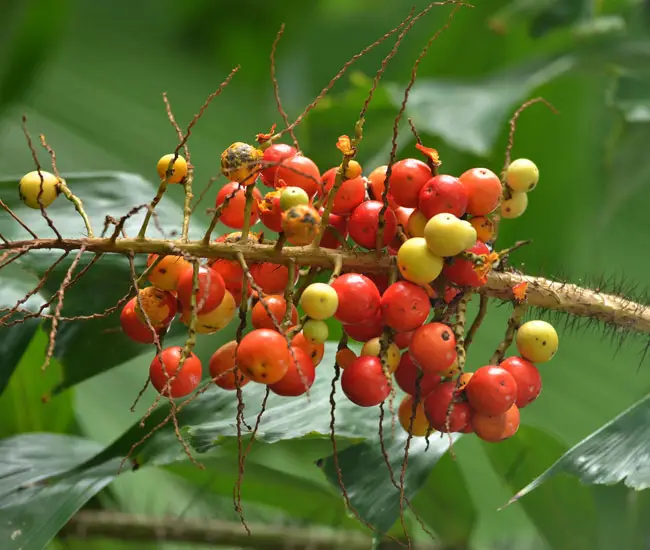
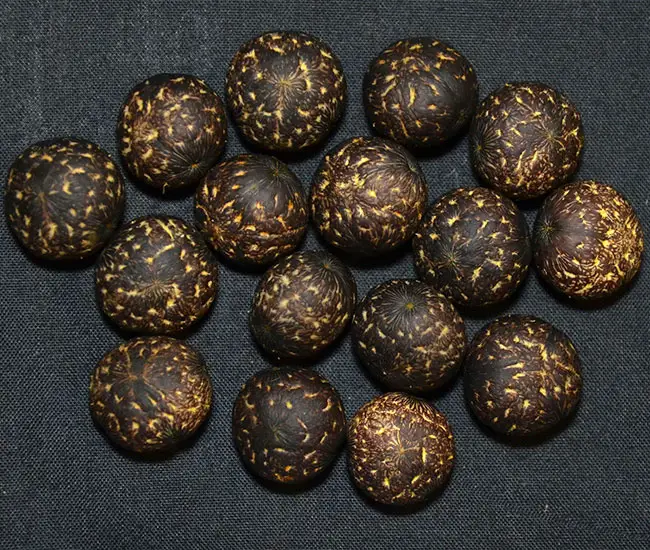
During the summer months, the Coyure Palm graces us with small, yellow flowers. Intriguingly, both male and female flowers emerge on the same inflorescence, a unique botanical characteristic.
Following the flowering phase, the palm produces round, bright red fruits with an orange endocarp, each measuring approximately 1/2 inch in diameter and containing a single seed.
Caring for the Coyure Palm
The Coyure Palm, while enchanting, is not particularly cold-hardy and can withstand temperatures down to 30°F. Therefore, it necessitates protection during cold snaps. It thrives in regions within USDA Zones 10a (with temperatures ranging from 30 to 35°F) to 11 (above 40°F).
To optimize its growth, this palm prefers consistently moist, well-drained soil, and it’s essential to avoid allowing the soil to dry out between waterings.
To ensure that the palm receives essential nutrients and to prevent nutritional deficiencies, it’s recommended to apply a high-quality palm fertilizer with a continuous-release formula twice a year during the growing season.
Propagation of the Coyure Palm is primarily achieved through seeds.
Coyure Palm Pictures
